Steven Spielberg Reveals 7 Secrets About 'Close Encounters of the Third Kind'
There were a number of highlights of the 15th TCM Classic Film Festival held between April 18th and the 21st in Hollywood. One of the biggest was Steven Spielberg being greeted with a standing ovation as he took the stage of the TCL Chinese Theatre prior to a screening of the director's cut of Close Encounters of the Third Kind. That film, of course, chronicles humanity's first contact with extraterrestrials, and Richard Dreyfuss is in the middle of it all as everyman Roy Neary.
Steven Spielberg is the man who's had his finger on the pulse of the moviegoing audience since he first terrified us in 1975 with Jaws, and really hasn't let go. Here we are nearly 50 years later and he continues to be one of the most influential filmmakers there's ever been, whether serving as director, producer or executive producer — with two movies coming in 2024 and nearly three dozen more in various stages of development.
For about 20 minutes on Friday, April 19th Steven Spielberg sat in conversation with TCM's Ben Mankewicz, reflecting on the making of Close Encounters and revealing the following behind-the-scenes facts about the film.
1. The script for Close Encounters was being written during the making of Jaws
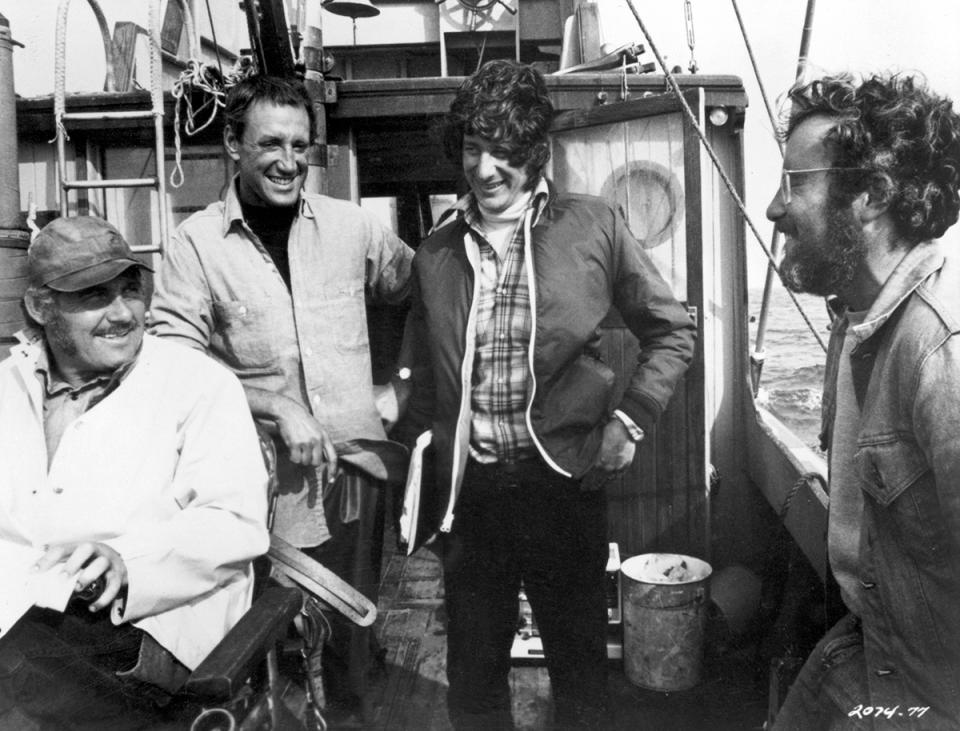
?Universal Pictures/courtesy MovieStillsDB.com
During downtime on Jaws, Steven Spielberg was crafting the script for Close Encounters, and Richard Dreyfuss — Hooper in Jaws — was well aware that the director was looking for other actors to play Roy Neary, and Dreyfuss tells the story of how he used to walk by Spielberg's office, being disparaging in a playful way, saying things like, "Al Pacino has no sense of humor; Dustin Hoffman lacks boyhood wonder."
"It's all true," laughs Spielberg. "Richard is a good storyteller, but Richard tells the truth. We were working every day, we were sort of marooned on Jaws for over seven months, about five-and-a-half of those months on Martha's Vineyard before coming to Catalina Island off the coast [of California]. So we spent a lot of time with each other and I was working on the script. I had different people in mind."
MUST-READ: The Wizard of Oz and Beyond — Life for the Cast After the Yellow Brick Road
2. Steven Spielberg approached Steve McQueen to star
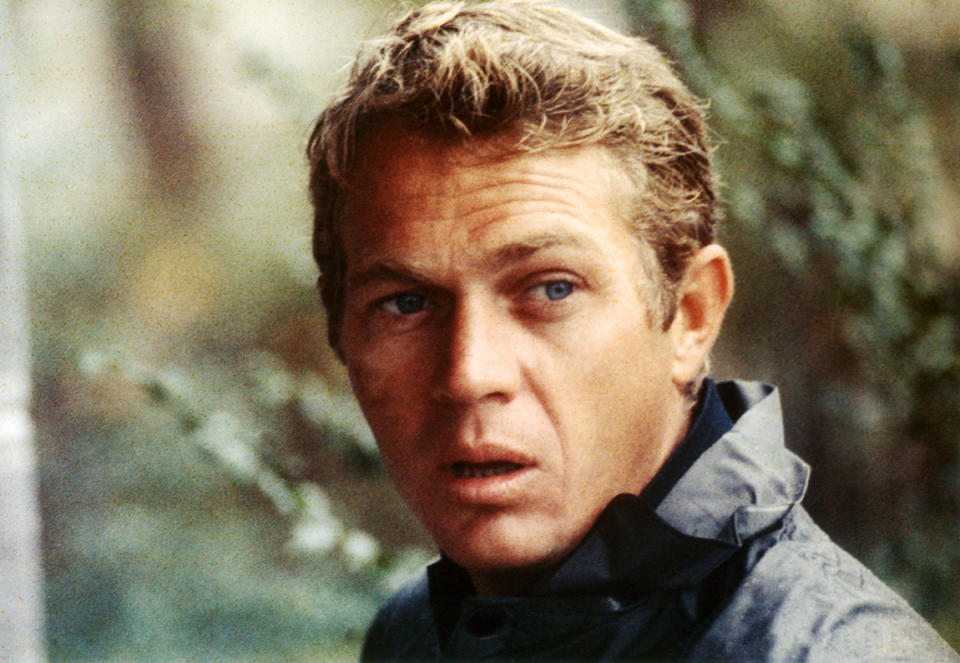
Herbert Dorfman/Corbis via Getty Images
"I went to Steve McQueen about playing Roy Neary," he says of the part that ultimately did go to Dreyfuss. "He read the script and invited me up to his beach house to talk about it. He opened up a can of Colt 45 beer. I wasn't a drinker and he didn't understand why I wouldn't drink the beer he put right in front of me. But we sat there and he told me how much he really liked the script.
"And then he told me that he was not going to be Roy Neary. I asked him why and he said, 'Because at the end, Roy Neary breaks down and he's crying. I don't do that.' I said, 'I'll cut it out,' and he said 'No, because when i read your script, it made me cry. That moment — you never cut that out.'"
MUST-READ: Sean Connery Movies — James Bond Was Only the Beginning
3. Richard Dreyfuss ended up representing Spielberg on screen
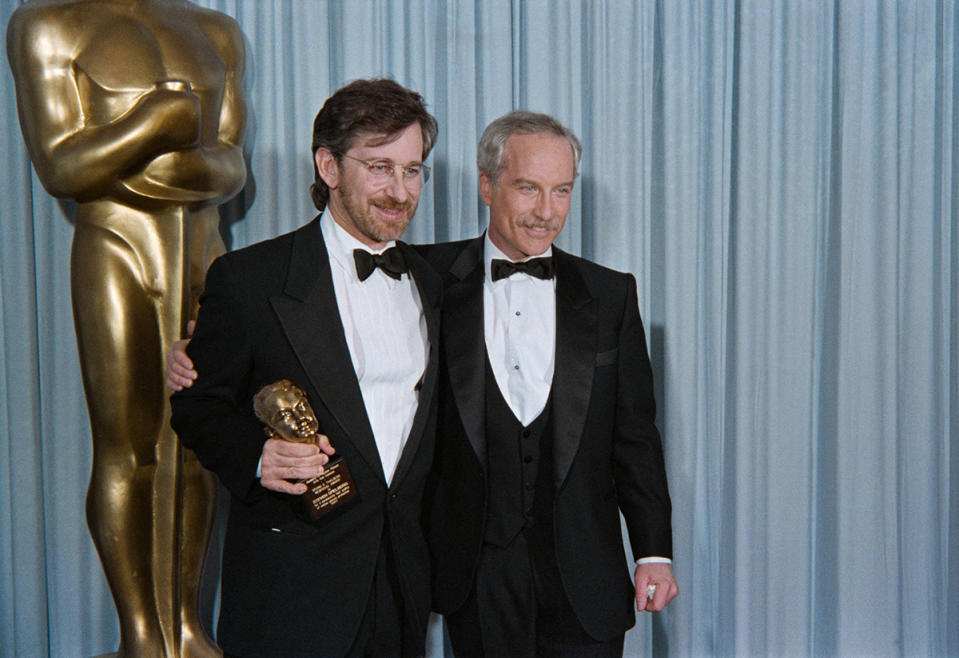
AFP PHOTO SCOTT FLYNN (Photo by SCOTT FSCOTT FLYNN/AFP via Getty Images
In the end, Richard Dreyfuss ended up being perfectly cast in the role. "Richard and I sort of identify with each other," Spielberg explains. "In a sense, when Francois Truffaut makes movies, he kind of casts himself. What I didn't realize was I was going to wind up casting myself to play Roy Neary, because that is how I identify with that kind of character. I wrote it from what I know, and it turned out that when Richard did the film, I really recognized a kind of kindred spirit. I apologized at some point to Richard after shooting 20 or 30 days on Close Encounters that I kept him in the wings for so long."
4. Teri Garr was signed because 'she was funny'
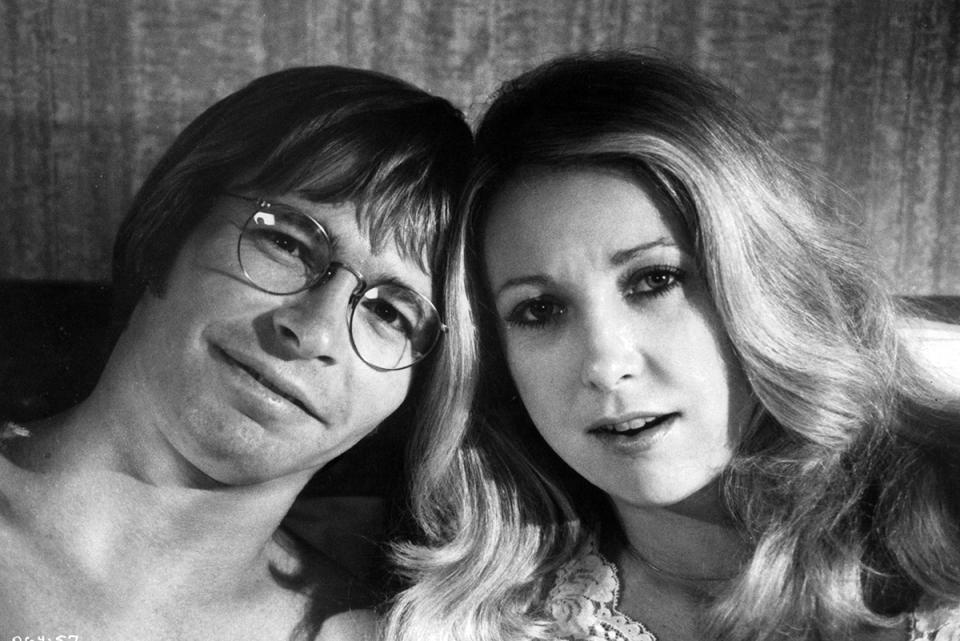
Warner Brothers/Getty Images
Actress Teri Garr (hysterical as Inga in Young Frankenstein) was hired to play Roy's wife, Ronnie, in a role that isn't actually that dissimilar from the one she played in John Denver's Oh, God!, released the same year as Close Encounters.
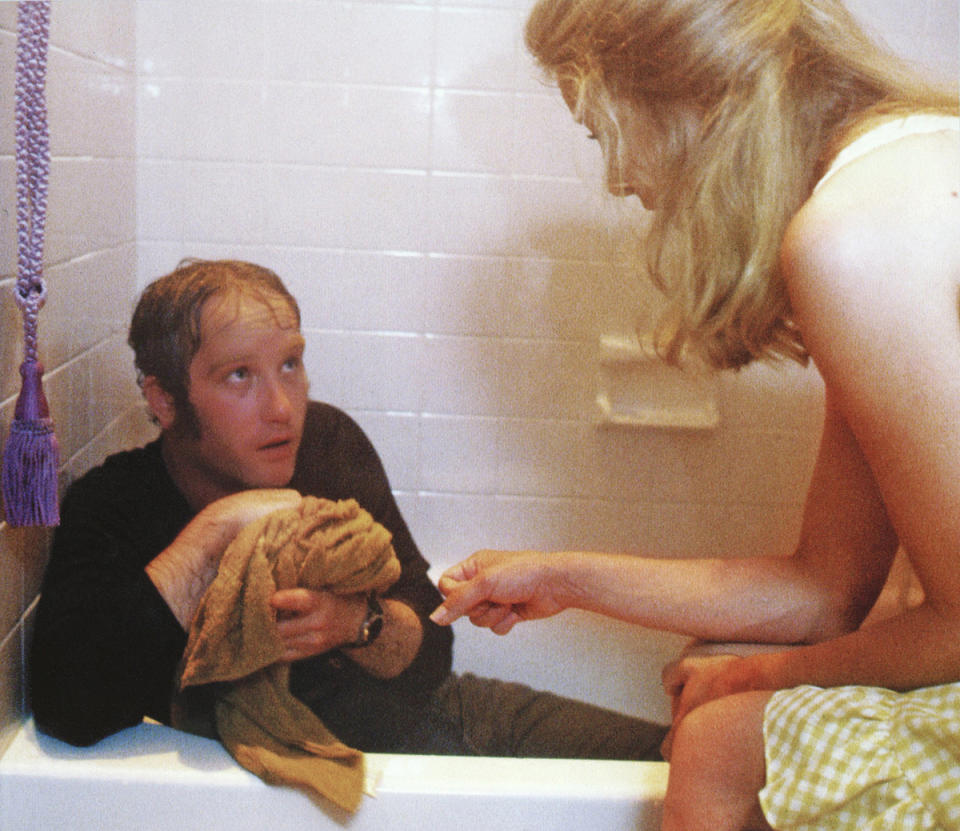
?Columbia Pictures/courtesy MovieStillsDB.com
"She made me laugh in a commercial she was in, selling coffee. I don't drink coffee, so whatever she was selling I wasn't buying it," laughs Spielberg, "but I was really wanting to meet her for my movie. In the film, she witnesses what appears to be her husband having a psychotic break, and when this is happening, I didn't want Ronnie to just be despairing and to fall apart and to be dark about his darkness. I wanted somebody that could figure out, 'How can I be normal in the middle of my husband melting down. What can I do to just sort of make fun of it, make light of it until I realize that I don't know how to handle anything like this.' So I needed somebody with that sort of humor."
MUST-READ: Young Frankenstein — A Look at Mel Brooks' Hilarious 1974 Classic
5. Steven Spielberg wanted non-threatening aliens
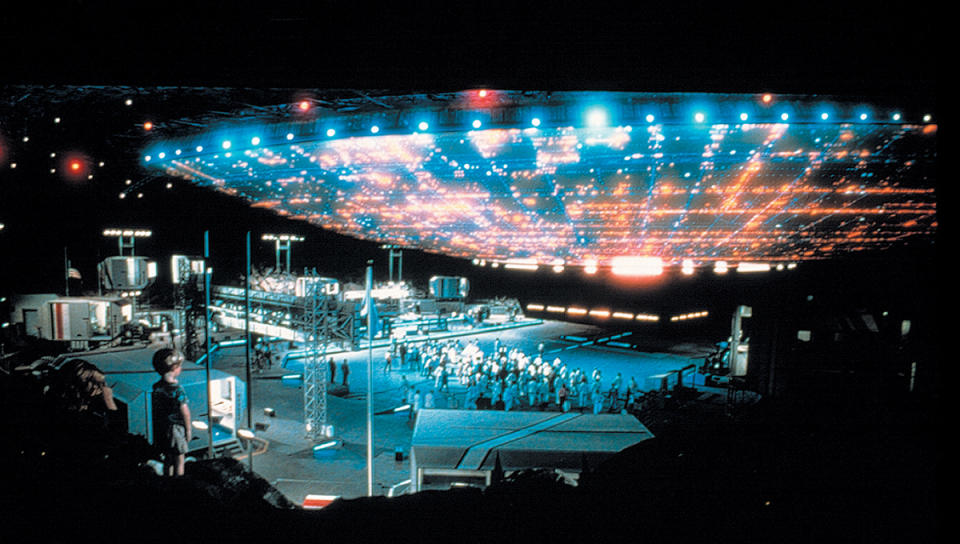
?Columbia Pictures/courtesy MovieStillsDB.com
When writing Close Encounters, Steven Spielberg had a very distinct notion in mind that these would be peaceful aliens as opposed to the more aggressive ones that usually showed up in sci-fi films.
"As a kid," he explains, "I was influenced very much by the movies, science fiction movies and Westerns, but I was also influenced by my parents. My dad one day woke me up in the middle of the night — I must've been six or seven years old. We were living in New Jersey and it was summertime, and he brought me out in the dead of night.
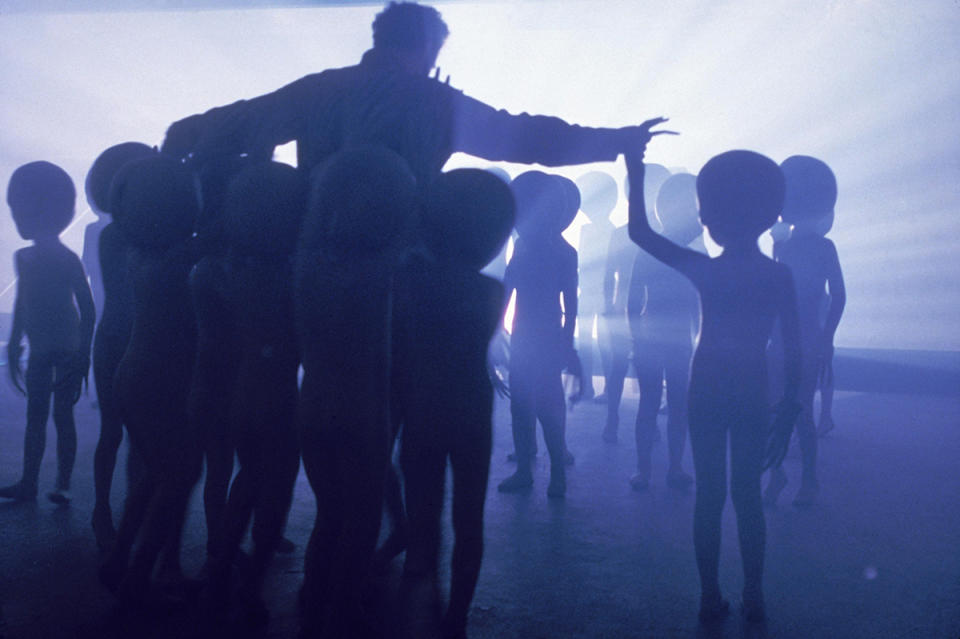
?Columbia Pictures/courtesy MovieStillsDB.com
"I was scared," Spielberg adds. "Why does a father come into a room and say, 'Come with me' in the middle of the night, put me in a car and drive me to this park? And there were a lot of people in the middle of the night on picnic blankets in the dark with some low-powered battery operated flashlights. My dad wanted me to see the Leonid meteor shower. So I had a chance to suddenly develop an awareness that we are not alone. When you look up at the sky, your imagination immediately says, 'There's something happening out there that we may not fully understand.'
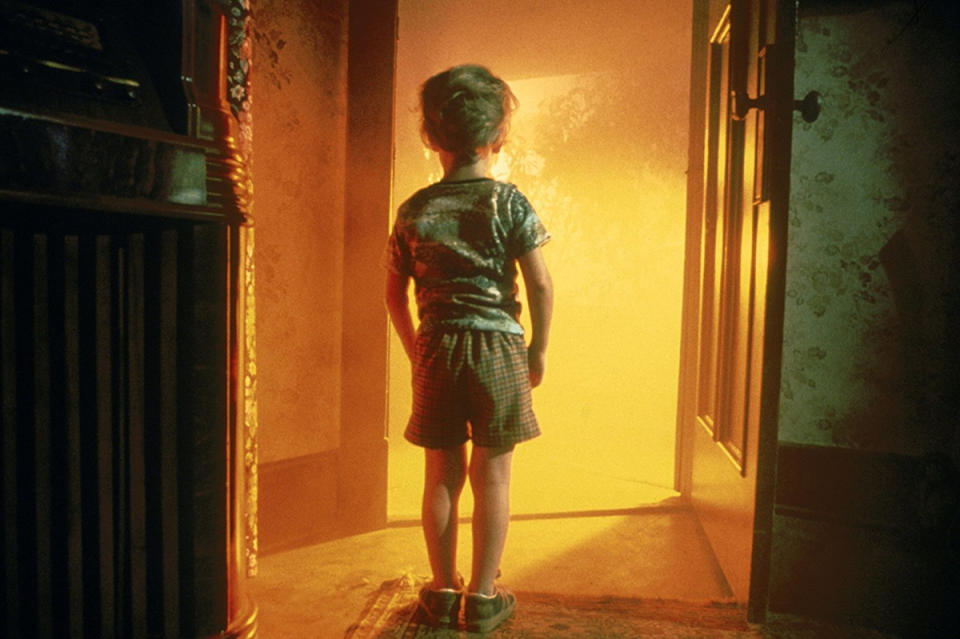
?Columbia Pictures/courtesy MovieStillsDB.com
"The night sky was such a romantic thing that I didn't look up there and say, 'Death is going to come raining down on us from some Martian invasion.' I really looked up and thought, 'If anybody does bother to come hundreds, thousands or millions of light years to find us here, it's going to be a peaceful communion.'"
MUST-READ: 15 of the Best Action Movies on Netflix, Ranked — Guaranteed to Get Your Heart Pumping
6. He wanted to manipulate a sense of wonder
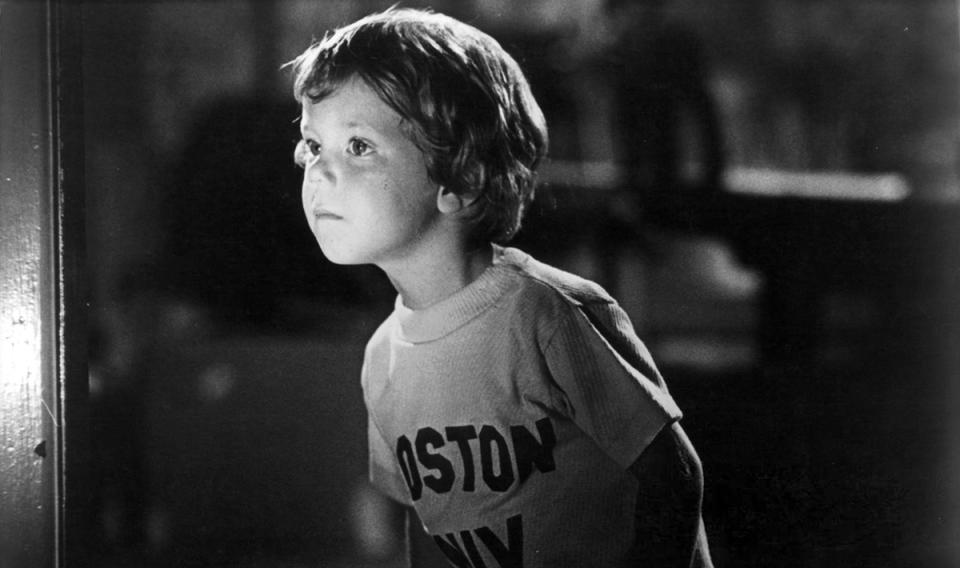
?Columbia Pictures/courtesy MovieStillsDB.com
One of the great performances in the film is that of Cary Guffey, the three-year-old who plays Barry Guiler, son of Melinda Dillon's (A Christmas Story) Jillian Guiler. There is a great moment in the film when he's reacting to off-camera aliens and has this sense of wonder, joy and pure delight on his face — all of which was manipulated by Steven Spielberg.
"Yes, what I did was manipulative, but it was effective when he had to look at the sky, because something was coming out of the sky and he was looking at this with great fascination. I I said, 'Roll,' and we rolled the camera and I said, 'I have a present for you.' I got up on the ladder, so it was above his sight line. I had a gift-wrapped present and I slowly started to unwrap the present, one piece of paper, one ribbon string at a time, and his eyes were salivating. I removed the lid of the box and I brought a little toy car out for him and I said, 'Cut, next shot!'"
7. Steven Spielberg did not let the success of Jaws worry him on Close Encounters
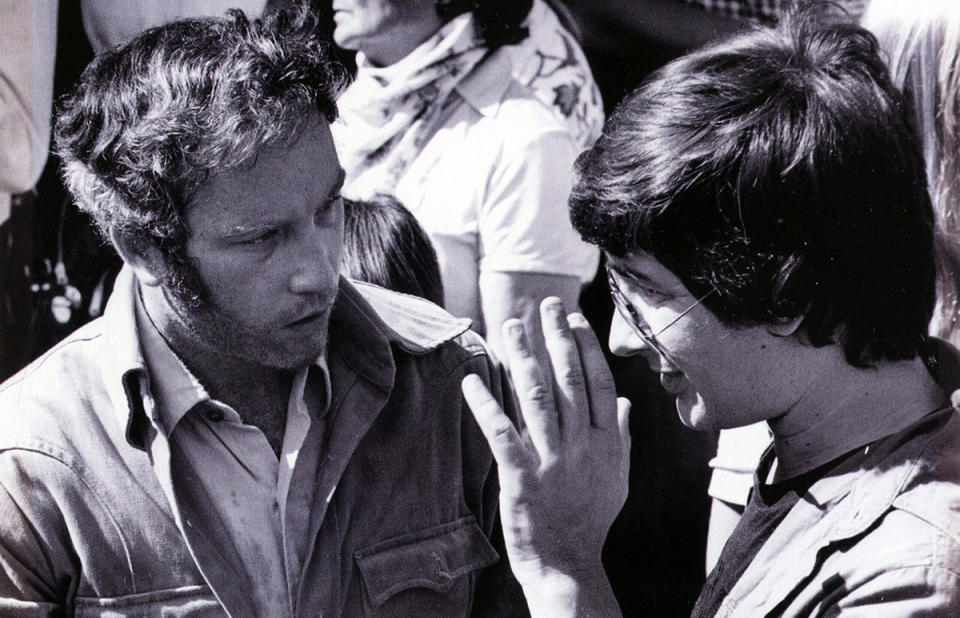
?Columbia Pictures/courtesy MovieStillsDB.com
The pressure for Spielberg going from 1974's The Sugarland Express to Jaws was not something he really felt given that expectations were relatively low. However, after Jaws became the biggest movie of all time (until the arrival of Star Wars two years later), there were expectations aplenty when it came to his followup, Close Encounters of the Third Kind. Pressure for everyone ... except Steven Spielberg.
"Not even a little bit," he emphasizes, "because I wasn't looking to match the box office of Jaws. I had this movie in my heart for a long time. I made a little movie called Firelight about UFOs when I was 16-years-old in Phoenix, Arizona on 8mm. And it was two-and-a-half-hours long. It was actually longer than Close Encounters, and I really didn't care. I just wanted to make the movie. That's all that mattered to me."
